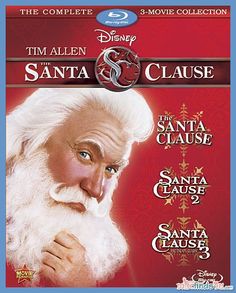
My previous post talked about using commas around adjective clauses. Today we discuss using commas with adverb and noun clauses.
Adverb clauses (clause = a group of words containing a subject and a verb, but not always a sentence) act as adverbs in a sentence, usually modifying the verb in the sentence. Noun clauses serve as nouns in a sentence, functioning, like nouns, as subjects or objects.
Let’s talk about adverb clauses first. Adverb clauses can begin a sentence, end a sentence, or sometimes be in the middle of a sentence. Adverb clauses begin with words like this: because, although, if, since, whenever, when, wherever, before, and after (called subordinating conjunctions if you wanted to know!).
Here are some sentences that begin with adverb clauses. Always use a comma after adverb clauses that begin a sentence. Remember the rules about introductory elements? Well, actually these are introductory elements.
- Because I won’t be home next weekend, I can’t make it to your party.
- Although I love this flooring, I just cannot afford it.
- If you wait here a few minutes, I can come with you.
- Since I can’t be there on the holidays, we can meet after the new year.
- Whenever I eat chocolate, I am happy.
- When I see my family, I am always grateful.
- Wherever you go, I will follow.
- Before you leave for your vacation, make sure you have enough cash.
- After we get home from the game, we will have dinner.
Careful with before, after, and since. They can also be used as prepositions. If you don’t see a verb with them, they are not being used in a clause. They are being used in a prepositional phrase, and you probably don’t need to follow them with a comma:
- Since last Tuesday I have walked fifty miles.
- Before the game you should warm up.
- After midnight Santa will come!
Notice that in all the examples of introductory adverb clauses above, you can flip the sentence around. When you flip it around, you usually do NOT need a comma before the clause. If you really would pause, and the information is really additional information, you can use a comma. Because is never preceded by a comma.
- I can’t make it to your party because I won’t be home next weekend.
- I just can’t afford this flooring, although I love it. (I would use a comma here; it is additional information.)
- I can come with you if you wait here a few minutes.
- We can meet after the new year since I can’t be here for the holidays.
- I am happy whenever I eat chocolate.
- I m always grateful when I see my family.
- I will follow wherever you go.
- Be sure you have enough cash before you leave for your vacation.
- We will have dinner after we get home from the game.
You can see that the clause is necessary for the complete meaning of the sentences except for the sentence with although. Therefore, do not use a comma.
Noun clauses are generally followed by commas when they begin a sentence because they cause the sentence to have an unusual word order. Sentences with unusual word order often have commas to make them clearer. Here are some examples:
- Whatever you want, I don’t think I have. (“Normal” word order would be, I don’t think I have whatever you want)
- Whoever you are, you should leave this instant.
- Whatever this is, I don’t know to work it.
- Whom you are pretending to be, I don’t know.
It is perfectly fine to write a sentence with unusual order. Sometimes sentences are written this way for effect.
——————————————————————————-
Happy Chanukah from The Grammar Diva!
Still looking for that perfect gift for the person who has everything?
Next week – The annual Christmas post (or should I say holiday post??)




Leave a Reply